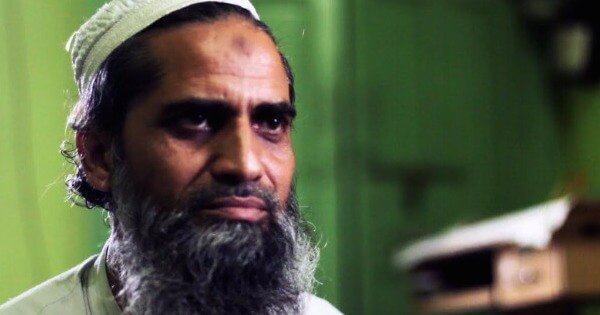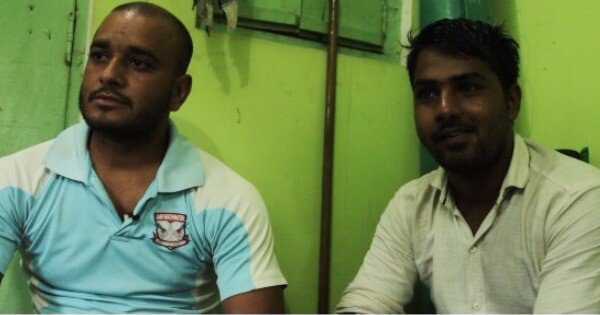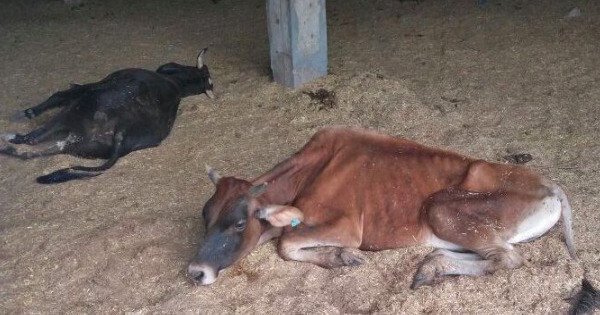Ramgarh, Rajasthan: The Ramgarh Jama Masjid sits squarely in the middle of a bustling market. It’s a relatively new structure that houses a number of grocery shops in the ground floor.
A flight of stairs takes you to a different world. Rows of nodding heads of boys in white greet you as you negotiate your way across the hall. At the furthest end of the hall is Maulana Mohammad Israel’s meeting room. It is also the head office of the Ramgarh Muslim Rashtriya Manch. (But it’s not linked to the RSS-propped Muslims organisations by the same name).
This is a group of Muslim gau rakshaks from Nohar tehsil in the Hanumangarh district of Rajasthan, roughly 165 kms away from the national capital.
“Essentially, we have been cow protectors for centuries. Most of the Muslim families here have at least one cow in their houses. Some of them are also into dairy business. So, for us, cows are not just animals,” says Maulana Israel. `

Ramgarh in Rajasthan is cow country. Quite literally. The village is presided over by perhaps India’s best known gau rakshak, Nawal Kishore Sharma, who heads the local cow vigilante group. The village of 15,000 residents has two gaushalas (cow shelters), each with a capacity of 500. There are four special ‘gau raksha’ police stations in the village, that are meant exclusively for dealing with cow smugglers.
Ramgarh has lawyers, teachers and politicians chipping in as volunteers in Sharma’s vigilante group. This basically means that they patrol the area on the lookout for smugglers illegally transporting cows for slaughter. The Muslim community of Ramgarh, which has about 150 houses in the village, didn’t want to be left behind.
“We formed the Muslim Rashtriya Manch only about a few months ago, but our boys have been involved with Sharmaji’s gau rakshak group for years,” says Maulana Israel.
Nawal Kishore Sharma claims that Muslims of the village are completely dedicated to his “cause”.
“It’s not just Muslims, we also find Hindus among the cow smugglers we catch. It’s not a religious thing. It’s about the greed of some people who are out to destroy our mother,” says Sharma.
About 15 Muslim youths from Ramgarh village are members of the Muslim Rashtriya Manch, which says it is not allied with any political party.
“We are not associated with any political party, we are here just to protect cows of the area from ruthless smugglers,” says Maulana Israel.
Saleem Khan is a 24-year-old who has studied engineering from a polytechnic college and has been a dedicated gau rakshak for three years.

“I was encouraged by the elders of the community to do so. I never associated my religion with this work. I saw this as a social work,” says Saleem.
He takes out his mobile phone and shows the FB page of Sharma’s gau raksha group.
“We caught a truck full of 30 cows just two days ago. You won’t believe how badly they were packed into that small truck. I have been doing this for the past three years, but still my eyes well up when I see the cows we rescue,” says Saleem.
Farukh Khan, 28, has been a dedicated gau rakshak for about a decade now. Like most other Hindu gau rakshaks, he visits the local akhada every day and follows a strict diet of milk and ghee.
“I believe that cow milk makes you stronger,” he says.
He is a practicing Muslim but doesn’t believe cow protection is in contradiction with his religion.
“I don’t worship cows,” he insists. He wants to be a member of the local Shiv Sena outfit but hasn’t been given a card yet.
“It’s a lifestyle choice for me. It’s my way of protecting our way of life,” says Farukh.
On August 13, the elders of the Muslim community in Ramgarh had gathered in Maulana Israel’s meeting room to talk about the expansion plans of Muslim Rashtriya Manch. They want to reach out to more neighbouring villages, make it a national movement. They have full cooperation of the local authorities too.
“The Muslim community of the village has cooperated with us even in our past endeavours against cow smugglers. The newly-formed body will only help further the cause,” says Jasvir Singh, Assistant Sub-Inspector of the Alvara Gauraksha Chowki.
Soon plates of Alwar peda, a local specialty, and bhujia is passed around. Gau Raksha is clearly the topic of the month, more so after Prime Minister Narendra Modi’s controversial remarks dismissing 80 per cent of cow vigilantes of the country as ‘fake’.
What do they think about the Dadri case?
“That was an unfortunate incident. That was not a punishment Akhlaq deserved,” says Maulana Israel.
So does he believe eating beef in this country is a crime? “The government of our state has banned beef so we don’t have it,”says Maulana Israel.
In Rajasthan the slaughter of cow and its progeny, including bulls and bullocks of all ages, is completely banned, but many believe that beef is a poor man’s meat.

“There are plenty of other cheap meats, why should we eat beef if it’s banned?” asks Maulana Israel.
But despite their activity, being a gau rakshak doesn’t necessarily mean immunity for the community. “It’s like we cannot do anything right. People believe that all Muslims are into cow slaughters, it’s a mindset that refuses to change,” says Maulana Hanif, another prominent member of the Muslim community of Ramgarh. He claims that though Muslim community of the village has been active in “gau raksha”, they have sometimes been targeted by “rogue cow vigilantes”.
“A few years ago, a member of our community was travelling from here to Haryana with about 15 cows. He needed to get them treated in a hospital. When he was about to enter Rajasthan, he was stopped by some gau rakshaks who took away all his cows and thrashed him. He approached us and we took him to local leaders, but they took no action. It has been two years now since the incident. He still hasn’t got his cows back,” he says.

















